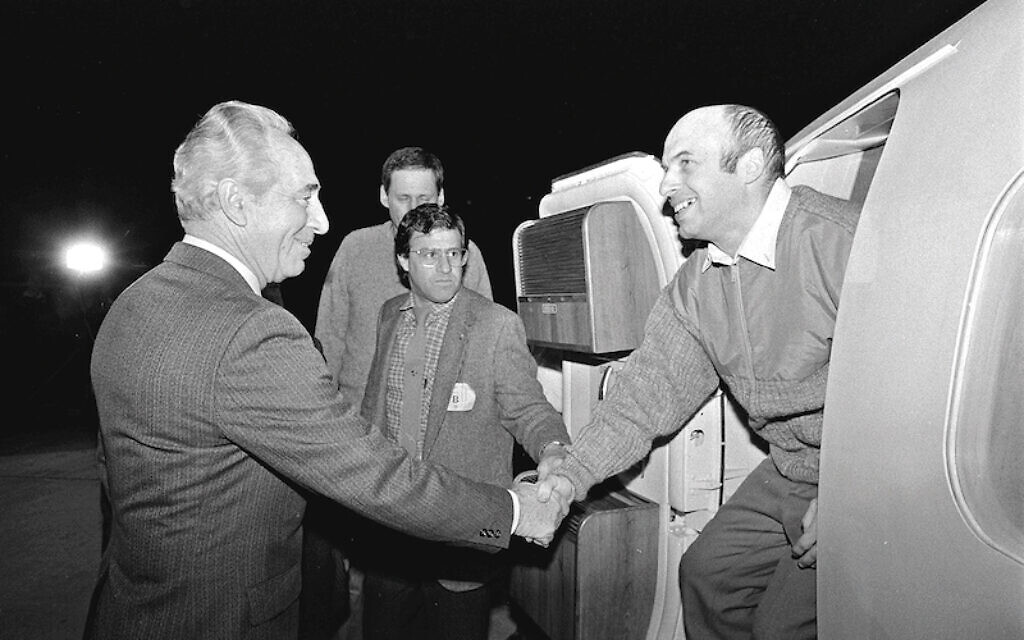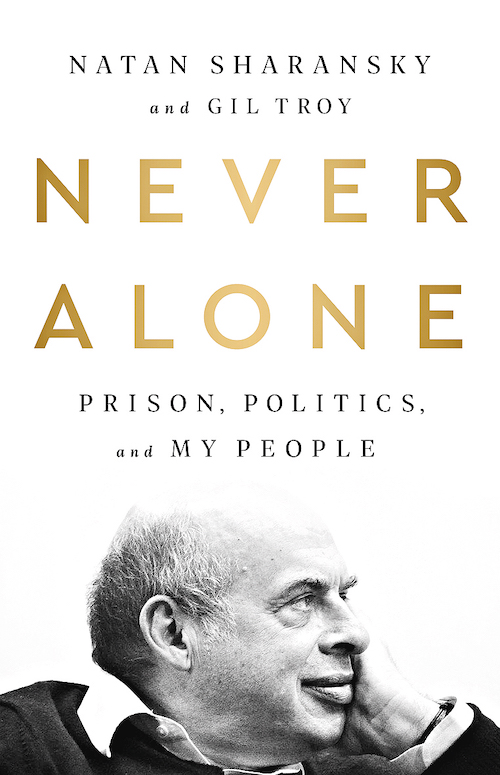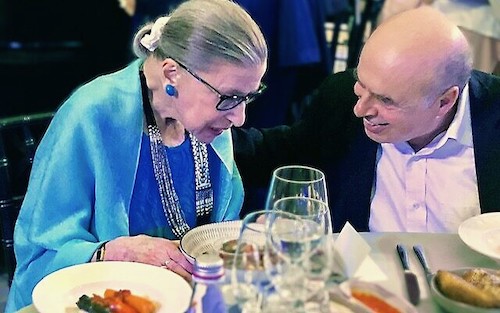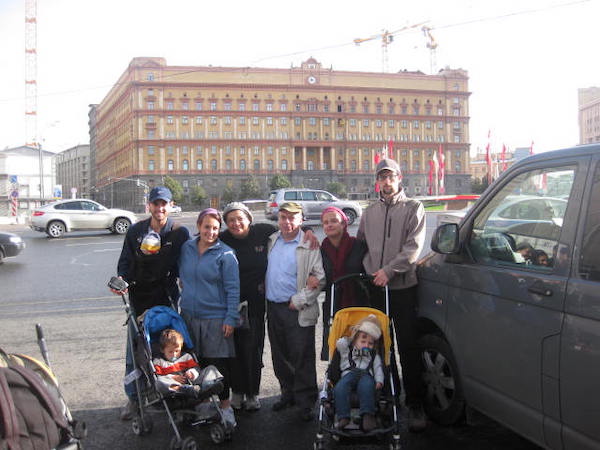Natan Sharansky: ‘Millions of people were on hunger strike with me’
Francine Wolfisz speaks to the Jewish human rights activist and former Soviet Refusenik about his new book, which reflects on a life spent fighting for others

Yom Kippur has always had a special resonance for Natan Sharansky. Nearly 40 years ago, while locked up in a barbaric punishment cell inside a Soviet Gulag, the prominent Refusenik chose to begin a drastic action to highlight his plight: a 110-day hunger strike. It was one that would subject his body to extreme starvation and the torturous cycle of repeated force feedings.
Inside his cell, there was “no light, no furniture, nothing to read, no one to talk to” and yet beginning his action on the Day of Atonement meant, in Sharansky’s mind, that he no longer felt quite so cut off from human contact.
“Starting on this day meant that, symbolically, millions of people were on hunger strike with me and there was this feeling of connection. Each year since then, I am immediately taken back to those days when it seemed like I was alone, but I was energised by the thought all the people of Israel were with me.”
Get The Jewish News Daily Edition by email and never miss our top stories Free Sign Up
It seems only fitting that, as another Day of Atonement rolls around, Sharansky’s reflections on just that moment in his life, alongside his subsequent career as an Israeli politician and head of the Jewish Agency come to the fore in his newly-published book, Never Alone: Prison, Politics and My People.
During a video call from his home in Jerusalem, the 72-year-old points out his latest work, co-written with historian Gil Troy, is not a memoir, but rather a stocktake of a man who overcame the almost impossible task of leaving Russia, starting anew in Israel and helping to shape his adopted country.

Born a few months before the establishment of the state of Israel in 1948, Sharansky details how he grew up in an atmosphere of Soviet oppression, fear and “doublethink”. He tells me: “Communism established control through the mind. Hundreds of millions of people lived in fear and never took risks, because your only principle is surviving the system.
“You know what you’re permitted to say, you know how to vote and that is your official life. But your true life is with your family, where you can speak openly about your disappointments, your criticism of the system, your feelings about antisemitism.
“Doublethink creates an unpleasant life of permanent self-control, but for some people they almost don’t know it is happening. It’s only when you have got rid of this do you know what it means to be free.”
Sharansky was mesmerised by Israel’s victory in the Six-Day War in 1967, an event he credits as awakening his sense of Jewish identity. “I finally discovered an identity that can be mine. Before this, I was lifeless. Life was only physical survival.”
Doublethink creates an unpleasant life of permanent self-control, but for some people they almost don’t know it is happening. It’s only when you have got rid of this do you know what it means to be free
He began to rail against communism, becoming a leading activist for the democratic dissident movement and Jewish emigration. Unsurprisingly, he became known to the authorities. He married Avital, in a hasty Jewish wedding arranged just hours before she left for Israel but, as a Refusenik, he was forbidden to join her and found himself accused by the KGB of high treason and espionage.
Sharansky’s next nine years would be spent in Soviet prison and labour camps, while both his mother, Ida, and Avital unceasingly worked from the outside to secure his release.
His years in prison were brutal and would likely have broken many a man, but not him. “I had my freedom [from a life of doublethink] and my identity. It was a privilege to be inside, to have this feeling I can influence the one thing that can define the future of my people,” he says.
Sharansky had another comfort to fall back on: with a natural brilliance for maths, as a child he was also something of a chess prodigy, playing multiple games at the same time, or even blindfolded. Inside his cell, he was given nothing to look at or do, but he could still play a game against himself. “They couldn’t take the chess board from my head,” he muses.

In 1986, he was released as part of a prisoner exchange and was finally allowed to leave the Soviet Union for Israel. Nearly a decade later, Sharansky had become a household name in politics, promoting the absorption of Russian Jews into Israeli society and holding ministerial positions under Ehud Barak, Ariel Sharon and Benjamin Netanyahu.
After exiting politics in 2006, he became the head of the Jewish Agency, promoting Israel to the diaspora and vice versa, a position that gave him a unique insight into what he feels is the biggest threat to the Jewish world today – political in-fighting and disharmony. “What unites us is bigger than what divides us, but that’s becoming more difficult in this atmosphere of polarisation,” he reflects.

“We are obsessed with only seeing antisemitism in our opponents and not among ourselves. On the left, you have antisemitism expressed as anti-Zionism, while on the right you have hatred expressed towards liberal Jews. That is a big problem, because we can only fight against those who want to demonise us if we are a united country [and] people.”
About President Trump, he says: “There’s no doubt he gives a lot of headache to every liberal citizen,” but credits him for “doing some very good things for Israel”, including the recently-signed deals with the UAE and Bahrain. As for peace with the Palestinians, he feared Oslo would create a situation that would be “dangerous for our very existence” and is optimistic about a successful peace process soon.
“Dismantling these awful refugee camps, creating a normal economy, a system of mutual education – these are the ways that can bring us to peace. I would like us to stop controlling the lives of Palestinians as soon as possible, but I don’t think there are shortcuts.”
- Never Alone: Prison, Politics and My People by Natan Sharansky and Gil Troy is published by Public Affairs priced £23 (hardback). Available now

Thank you for helping to make Jewish News the leading source of news and opinion for the UK Jewish community. Today we're asking for your invaluable help to continue putting our community first in everything we do.
For as little as £5 a month you can help sustain the vital work we do in celebrating and standing up for Jewish life in Britain.
Jewish News holds our community together and keeps us connected. Like a synagogue, it’s where people turn to feel part of something bigger. It also proudly shows the rest of Britain the vibrancy and rich culture of modern Jewish life.
You can make a quick and easy one-off or monthly contribution of £5, £10, £20 or any other sum you’re comfortable with.
100% of your donation will help us continue celebrating our community, in all its dynamic diversity...
Engaging
Being a community platform means so much more than producing a newspaper and website. One of our proudest roles is media partnering with our invaluable charities to amplify the outstanding work they do to help us all.
Celebrating
There’s no shortage of oys in the world but Jewish News takes every opportunity to celebrate the joys too, through projects like Night of Heroes, 40 Under 40 and other compelling countdowns that make the community kvell with pride.
Pioneering
In the first collaboration between media outlets from different faiths, Jewish News worked with British Muslim TV and Church Times to produce a list of young activists leading the way on interfaith understanding.
Campaigning
Royal Mail issued a stamp honouring Holocaust hero Sir Nicholas Winton after a Jewish News campaign attracted more than 100,000 backers. Jewish Newsalso produces special editions of the paper highlighting pressing issues including mental health and Holocaust remembrance.
Easy access
In an age when news is readily accessible, Jewish News provides high-quality content free online and offline, removing any financial barriers to connecting people.
Voice of our community to wider society
The Jewish News team regularly appears on TV, radio and on the pages of the national press to comment on stories about the Jewish community. Easy access to the paper on the streets of London also means Jewish News provides an invaluable window into the community for the country at large.
We hope you agree all this is worth preserving.
-
By Laurent Vaughan - Senior Associate (Bishop & Sewell Solicitors)
-
By Laurent Vaughan - Senior Associate (Bishop & Sewell Solicitors)
-
By Laurent Vaughan - Senior Associate (Bishop & Sewell Solicitors)
-
By Laurent Vaughan - Senior Associate (Bishop & Sewell Solicitors)





















